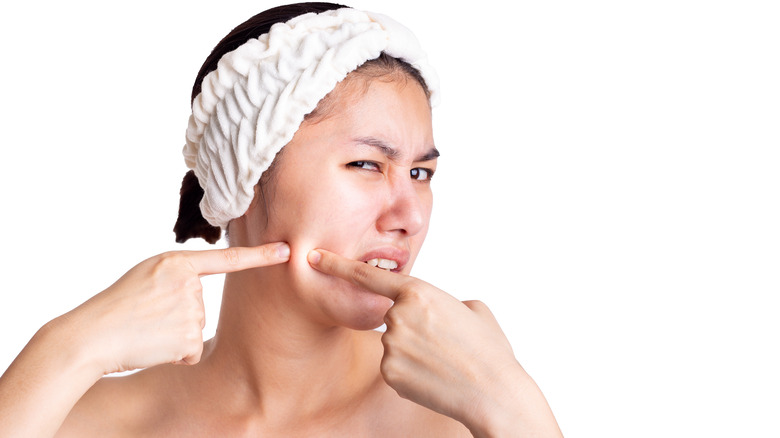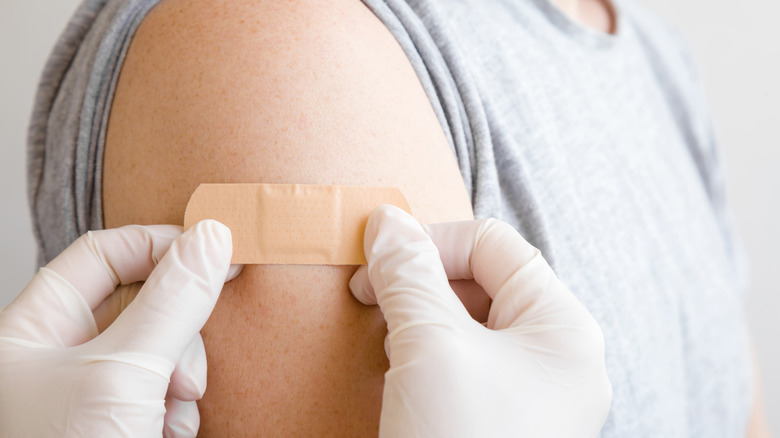You Should Never Pop Your Boil. Here's Why
While it may be tempting to pop or prick a boil with a sharp object, here's a word of caution: Don't do it. According to the American Academy of Dermatology (AAD), a boil is a skin infection that leads to a painful, pus-filled lump. Boils most commonly tend to crop up along an oil gland or hair follicle.
While boils can be caused by other microorganisms, the most common type of bacterial infection that leads to a boil forming is Staphylococcus aureus, or staph (via Cleveland Clinic). Squeezing or popping a boil is risky because this may spread the infection to other parts of the skin, as well as other parts of the body (via Medical News Today). Most of the time, boils will break down on their own and drain over time. This usually takes about one to three weeks. However, in some cases, a boil may need to be removed by a doctor.
How to treat a boil
To treat a boil yourself at home, the AAD says heat is your best weapon. First, create a warm compress using a clean washcloth and wet it with hot water. Be mindful of the temperature of the water. No need to boil the water or run your tap until it's scalding hot. Apply the compress to the affected area for 10 to 15 minutes as many as three to four times a day.
If you're experiencing pain from the boil, experts say you can take an over-the-counter pain reliever like ibuprofen or acetaminophen. Keep the area around the boil clean with mild soap and water. Don't touch or rub it, as this can also spread the infection. Cover a popped boil with a bandage. If a boil does not go away on its own within a few weeks or it becomes increasingly painful or swollen, see your dermatologist. If you have a fever, seek medical help right away.


